Auf ins Heim mit alten Menschen? Österreich setzt bei der Pflege noch auf den stationären Weg.
Was wollen wir wirklich: Partizipation oder Segregation einer wachsenden Bevölkerungsschicht?
 Weiterer Neu- und Ausbau von “Heimen” nach überholtem Konzept oder Baustopp und Abbau bestehender Heimplätze? Umsteuerung des Hilfesystems zugunsten flächendeckender individuell- bedarfsdeckender, gemeindenaher, vernetzter Unterstützungsangebote für Menschen mit Unterstützungsbedarf in ihrem selbstgewählten Zuhause, gleichberechtigt teilnehmend und “teilgebend”, nicht am Rand, sondern in der Mitte der Gesellschaft?
Weiterer Neu- und Ausbau von “Heimen” nach überholtem Konzept oder Baustopp und Abbau bestehender Heimplätze? Umsteuerung des Hilfesystems zugunsten flächendeckender individuell- bedarfsdeckender, gemeindenaher, vernetzter Unterstützungsangebote für Menschen mit Unterstützungsbedarf in ihrem selbstgewählten Zuhause, gleichberechtigt teilnehmend und “teilgebend”, nicht am Rand, sondern in der Mitte der Gesellschaft?
Welcher Weg ist zukunftsweisend und gesellschaftlich anzustreben?
Im Hinblick auf die demographische Entwicklung (Überalterung) wird in Österreich noch immer auf das Konzept der stationären Versorgung in so genannten “Heimen” gesetzt. Das Bundesland Niederösterreich investiert z.B. gerade 205 Millionen Euro in 725 zusätzliche Pflegebetten und sieht darin “ein großes Stück auf dem Weg zu einer sozialen Modellregion”.1 Niederösterreich hat zum Ziel, dass jeder, der eine Betreuung in einem Pflegeheim benötigt, sie auch bekommt.
Die Nachfrage für Heimplätze ist tatsächlich durch den Wegfall des Angehörigenregress gegenüber Kindern (Kostenanteil der Kinder für ihre pflegebedürftigen Eltern im Heim)2 seit 2008 gestiegen. Das aber nur deshalb, weil Ausbau und Förderung von Unterstützungsformen zum Verbleib Pflegebedürftiger in der eigenen Wohnung in Österreich von der Politik seit Jahrzehnten grob vernachlässigt wird. Eigentlich will aber fast niemand ins “Heim”, wie alle Umfragen belegen. Bald wird es heißen:
“Stell dir vor, es gibt viele Heime und keiner geht hin!”
Was wird also wirklich benötigt?
Diesen Fragen geht Mag. Christian F. Freisleben-Teutscher in einem Artikel vom 2.7.2009 (print) bzw. 9.7.2009 (online) in der aktuellen Ausgabe Nr. 27 der “Ärzte Woche” – SpringerMedOnline (Springer-Verlag Wien) nach.
Die Meinungen und Standpunkte aus unterschiedlicher Perspektive reichen von kritisch und selbstkritisch bis visionär. Übereinstimmung besteht in der Beurteilung, dass eine Weiterentwicklung überfällig ist, die von der Politik bisher verabsäumt, gebremst oder verhindert wurde.
- Auf ins Heim mit alten Menschen? Österreich setzt bei der Pflege noch auf den stationären Weg.
Mag. Christian F. Freisleben-Teutscher:
Selbst in abgelegenen Regionen wird voller Stolz an neuen Heimen gebaut – oft eine eindimensionale und wenig zukunftsweisende Antwort auf die Herausforderungen der demografischen Entwicklung.Das Land Niederösterreich wird bis 2010 über 205 Millionen Euro in zusätzliche 725 Betten in Alters- und Pflegeheimen investieren. Damit würden wesentliche Schritte auf dem Weg zu einer „sozialen Modellregion“ gesetzt werden und zudem über 2.800 neue Arbeitsplätze geschaffen, heißt es. Meldungen, wie sie aus jedem Bundesland stammen könnten.Noch mehr: Eine Gemeinde, die etwas auf sich hält, errichtet ein Alters- und Pflegeheim als „zukunftsweisenden“ Schritt. Die Frage ist jedoch, ob dies die einzig mögliche und richtige Antwort auf den steigenden Pflegebedarf ist. In Ländern wie Dänemark wird schon seit Jahrzehnten auf den Abbau von Heimplätzen und eine Stärkung ambulanter und mobiler Strukturen gesetzt. So wird es viel mehr Menschen ermöglicht, in ihren gewohnten Lebensstrukturen zu bleiben, was auch in gesundheitlicher Hinsicht nachweislich positive Effekte hat. Die Betreuung im ambulanten Bereich ist unterm Strich langfristig auch kostengünstiger. Zudem gibt es in Alters- und Pflegeheimen immer wieder Probleme unterschiedlicher Art oder sogar Missstände aufgrund des Personalmangels und schlechter infrastruktureller Ausstattung.Fraglich ist außerdem, ob ein „Heim“ auch immer ein Ort sein muss, der alle Dienste rund um die Uhr zur Verfügung stellt. Oder ob es nicht auch ein Kompetenzzentrum mit differenzierten Angeboten sein kann, die von Unterstützung und Beratung bis hin zur Tagespflege oder -strukturierung reichen können.
- Das Angebot der Heime ist momentan zu wenig differenziert.
Mag. Johannes Wallner, Präsident von „Lebenswelt Heim“, Dachverband der Alten- und Pflegeheime Österreichs:
Angesichts der Bevölkerungsentwicklung muss klar sein, dass der formelle Pflegebedarf in Zukunft noch weiter zunehmen wird. Wobei zu betonen ist: Momentan wird dieser zu über 80 Prozent von pflegenden Angehörigen getragen – ein Wert, der sich in den kommenden Jahren stark verändern wird. Denn immer mehr Menschen bleiben Singles, Kinder leben nicht mehr zuhause oder sind, weil sie den Wohnort wechseln, überhaupt nicht verfügbar. Die Generation zwischen 50 und 60 muss sich daher darauf einstellen, dass sie institutionelle Unterstützung benötigen wird.Es bräuchte Formen, die hier entlastend oder ersetzend wirken, also etwa Tagespflegeangebote ebenso im ländlichen Raum und Nachtpflegeangebote auch für sehr kleine Gruppen. Sicher eine größere Bedeutung werden künftig selbstorganisierte Seniorenwohngemeinschaften haben, die selbst Pflegekräfte anstellen oder sich Aufgaben teilen.
Momentan ist das Angebot im Heimbereich wenig differenziert. Eine wesentliche Ursache sind die gesetzlichen Vorgaben, die eine 24-Stunden-Betreuung unter allen Umständen einfordern. Selbstkritisch zu sagen ist, dass bisher wenig Alternativen entwickelt und hauptsächlich Vorgaben umgesetzt wurden. Allerdings ist zu ergänzen, dass Bewohner von Alten- und Pflegeheimen im Schnitt Pflegestufe 4,5 haben und 24-Stunden-Betreuung benötigen.
In Bundesländern wie Vorarlberg und Tirol ist die Vernetzung mit dem ambulanten und mobilen Bereich wesentlich besser umgesetzt – es ist viel eher möglich, individuell zu entscheiden, welche Unterstützung wirklich nötig ist.
Ein Weg der Zukunft ist, dass Heime sich viel stärker als Fachkompetenzzentren zum Thema Alter positionieren – da wird der zunehmende Wettbewerb mit privaten Anbietern sicher stärker eine Rolle spielen.
Für die weitere Finanzierung des Pflegesystems ist jedenfalls die Umsetzung des viel diskutierten Pflegefonds unumgänglich.
- Österreich hat Umorientierung auf gemeindenahe Versorgung bis jetzt versäumt.
Prof. Dr. Elisabeth Seidl, Institut für Pflege- und Gesundheitssystemforschung der Universität Linz):Ich möchte auf das Vorbildland Dänemark hinweisen: Seit den 1970er-Jahren werden dort keine neuen Heime gebaut, sondern vielmehr Pflegeheime geschlossen. In den 275 Städten und Gemeinden wird eine aus Steuern finanzierte Betreuung durch multidisziplinäre Teams gewährleistet, die bei Bedarf auch den Anspruch „Rund-um-die-Uhr“ erfüllen kann. Es sind in Dänemark – wie auch in vielen anderen europäischen Ländern – sehr vielfältige, bedarfsorientierte Lebens- und Wohnformen für ältere Menschen entstanden. Hierzulande ist Oberösterreich sicher ein Vorreiter, wo es etwa 1.800 betreute Wohnformen gibt, deren Zahl sich in den kommenden Jahren verdoppeln wird. Positive Ansätze gibt es zudem in der Steiermark. Das Beispiel der Caritas socialis in Wien zeigt außerdem Wege für die individuelle Begleitung von Menschen mit Demenz auf. In eine sehr positive Richtung geht das gemeindenahe Konzept der Hauskrankenpflege in Tirol und Vorarlberg – aber eine wirkliche Entscheidung für einen neuen österreichweiten Weg in Bezug auf das große Thema Pflege steht aus.Aus der Perspektive der Gesundheitsversorgung ist deutlich zu sagen: Es wird viel von der Notwendigkeit einer individuellen Pflege und Betreuung gesprochen. Je stärker diese wohnortnahe gewährleistet und tatsächlich auf die konkrete Situation abgestimmt ist, desto eher ist eine echte Gesundheitsförderung möglich, die natürlich auch in der Phase des Sterbens ihren Platz haben muss.
Immer wenn Wahlen sind, werden auch wir gefragt, Konzepte zu liefern, was wir gerne tun. Aber kaum steht eine neue Regierung, ist – ähnlich wie in der Zeit, als die Schlagzeilen über die Vorfälle in Lainz aus den Medien verschwanden – plötzlich niemand mehr für die Umsetzung dieser Pläne zuständig, oder sie scheitert am föderalen Dauerstreit.
- Pflegebereich braucht neue Ansätze.
Gerhard Lichtenauer, Initiator der österreichischen Bürgerinitiative „Daheim statt Heim”:
Es ist traurig, wenn Bundesländer wie Niederösterreich auf ein Heimsystem setzen, das vor über 120 Jahren entwickelt wurde. Dieser Weg ist kein Beitrag, der Sozialkompetenz beweist: Immer mehr Menschen werden so aus gewohnten Lebensräumen herausgerissen und in Institutionen untergebracht, die am Rand des gesellschaftlichen Lebens angesiedelt sind.Österreich ist noch stärker als Deutschland auf einem Weg, der in anderen europäischen Ländern völlig anders aussieht: In Skandinavien ist Pflege stärker ambulant organisiert, ähnlich im angloamerikanischen Bereich. Heime sind auch in Italien eher die Ausnahme als die Regel.Eine richtungsweisende Entscheidung ist dringend nötig. Das derzeitige System wird in zehn Jahren nicht mehr finanzierbar sein. Ein Pflegebett verursacht, wenn wirklich alles eingerechnet wird, Kosten von mindestens 5.000 Euro im Monat. Die Babyboomer-Generation wird langsam in den Bereich der Pflegebedürftigkeit kommen, die familiären Grundstrukturen haben sich aber radikal verändert. Für diese braucht es einen Ausgleich, durch den Ausbau einer vielfältigen Landschaft an Unterstützungsformen. Wichtig ist zudem die Stärkung des „Dritten Sozialraums“, wo in einer Quasi-Ehrenamtlichkeit Nachbarschaftshilfe eine völlig neue Bedeutung bekommt. Es ist unmöglich, in jedem Grätzel ein Alters- und Pflegeheim zu betreiben. Dies wäre zudem ein wirtschaftlicher Unsinn – so zeigen Studien (z. B. aus Schweden und der Schweiz), dass „persönliche Assistenz“ nicht nur für Menschen mit Behinderung im Vergleich zur institutionellen Pflege zumindest kostenneutral agieren kann. Dazu kommt: Die Menschen bleiben nicht nur in sozialer, sondern auch in wirtschaftlicher Hinsicht Teile der Systeme vor Ort, mit positiven volkswirtschaftlichen Aspekten, die in ihrer Bedeutung unterschätzt werden.
Hier ist der gesamte Artikel zum Download – © Springer-Verlag GmbH – (pdf): 2009-07-02_Aerztewoche_Pflege-Heim-Ausbau_oder_Umorientierung_SCAN Veröffentlichung mit freundlicher Genehmigung des Verlages.
Die Online- Ausgabe von SpringerMedOnline ist noch im Beta-Stadium und daher nicht auf aktuellem Stand. Sobald der Artikel online erscheint, wird die Verlinkung ergänzt.
Nachtrag (16.2.2010): Verlinkungen zur Online-Ausgabe der Ärztewoche wurden im obigen Text eingefügt.
Nachtrag (6.7.2009): Weiterführende Links:
Pflege-Offensive im Industrieviertel – Mikl-Leitner: 335 Betten und 200 Jobs mehr in den Altersheimen
Letzte Überarbeitung: 27.5.2013
- Anm.: Ohne Prüfung oder Nachweis einer Menschenrechts- und Sozialverträglichkeit von segregierender Aussonderung, sowie ohne Analyse volkswirtschaftlicher Aspekte, sowie ohne Berücksichtigung der Langfristkosten der Aufrechterhaltung eines Auslaufmodells. ↩
- Anm.: Der Angehörigenregress unterhaltspflichtiger Eltern für ihre pflegebedürftigen behinderten Kinder in stationären Einrichtungen ist weiterhin aufrecht! ↩
- Ähnliche Beiträge (most related posts), Wert in Klammern gibt thematische Nähe an:
- [D+241] Lebensstilmedizin muss Reparaturmedizin überwinden [70.4%]
- [D+263] Pflegenotstand 2.0 - das reglementierte Chaos (1) [56%]
- [D+266] Pflegenotstand 2.0 - das reglementierte Chaos (2) [56%]
- [D+270] Pflegenotstand 2.0 - das reglementierte Chaos (3) [56%]
- [D+280] Pflegenotstand 2.0 - das reglementierte Chaos (4) [56%]
- [D+281] Pflegenotstand 2.0 - das reglementierte Chaos (5) [56%]
- [D+290] Pflegenotstand 2.0 - das reglementierte Chaos (6) [56%]
- [D+293] Pflegenotstand 2.0 - das reglementierte Chaos (7) [56%]
- [D+365] Pflegerechtsnotstand trifft Rechtspflegenotstand (1) [56%]
- [D+251] Verantwortung wahrgenommen [Zufällig - 33.1%]
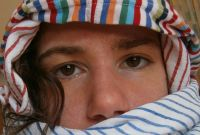
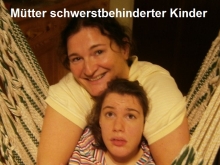
 AT: BIZEPS-INFO
AT: BIZEPS-INFO DE: Bi. "Daheim statt Heim" e.V.
DE: Bi. "Daheim statt Heim" e.V. DE: Kanzlei Menschen und Rechte
DE: Kanzlei Menschen und Rechte DE: kobinet-nachrichten
DE: kobinet-nachrichten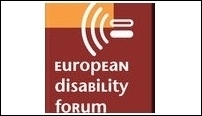 EDF – European Disability Forum
EDF – European Disability Forum ENIL – European Network on Independent Living
ENIL – European Network on Independent Living

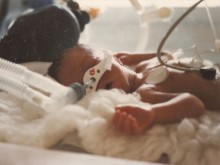


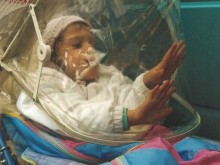
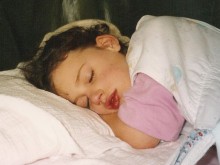
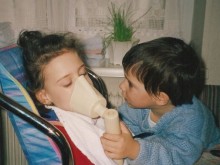
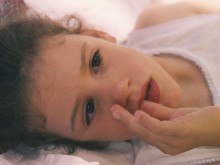

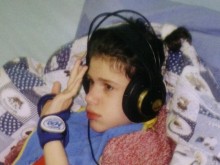

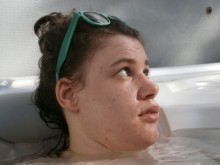

 AT: "Daheim statt Heim"
AT: "Daheim statt Heim" DE: ForseA
DE: ForseA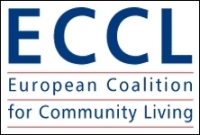 ECCL – European Coalition for Community Living
ECCL – European Coalition for Community Living
Kommentar verfassen